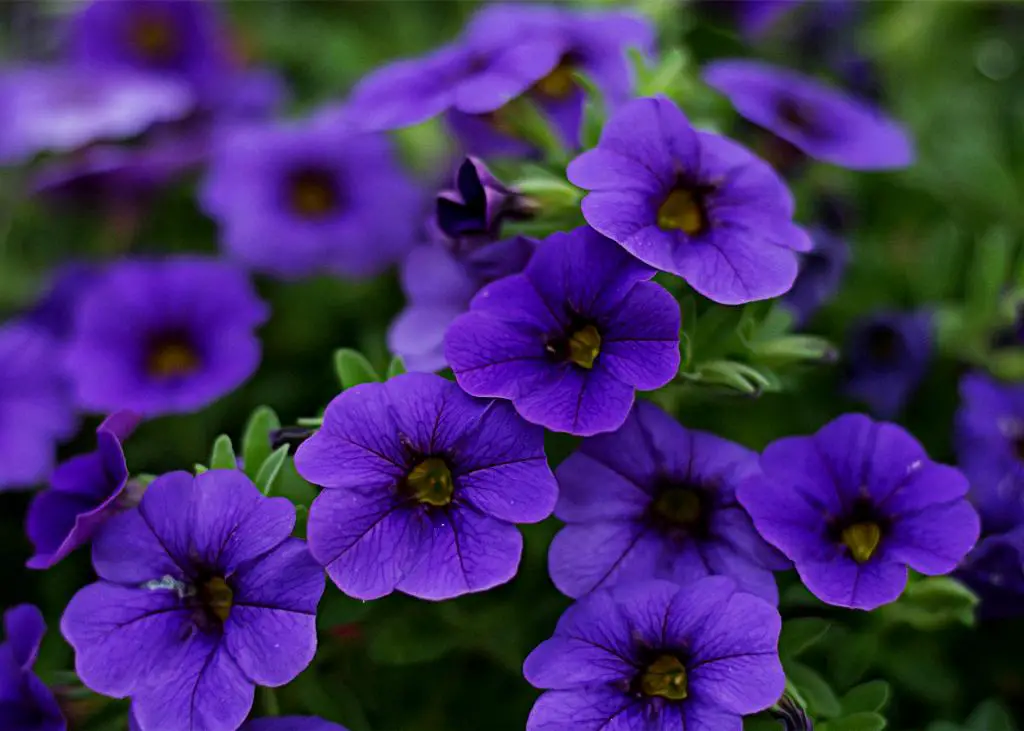When it comes to taking care of your petunias, there are a few key factors to keep in mind. One of the most important things to remember is to avoid overwatering. Petunias are prone to root rot, so it’s crucial to only water them when the soil is dry to the touch. By allowing the soil to dry out between waterings, you can prevent waterlogged roots and keep your petunias healthy.
In addition to proper watering, petunias also benefit from regular fertilization. Using a balanced fertilizer once a month can help promote healthy growth and blooming. Fertilizing your petunias provides them with the essential nutrients they need to thrive and produce vibrant flowers throughout the growing season.
Another key aspect of petunia care is mulching. Adding a layer of mulch around the base of your petunias can help retain moisture in the soil and regulate temperature. Mulch acts as a protective barrier, keeping the soil cool in hot weather and preventing water evaporation. This simple practice can make a significant difference in the overall health and vitality of your petunias.
When planting petunias, it’s essential to choose a location that receives ample sunlight. These sun-loving plants thrive in full sun conditions and require at least 6 hours of direct sunlight each day to flourish. By selecting a sunny spot for your petunias, you can ensure they receive the light they need to grow and bloom abundantly.
Proper spacing is also vital when planting petunias. Giving these plants enough room to spread out not only promotes air circulation but also helps prevent overcrowding, which can lead to disease and pest issues. To ensure optimal growth and development, space your petunias according to the specific requirements of the variety you’re growing.
Deadheading is another essential task in petunia care. Removing faded flowers regularly can encourage new blooms and prolong the flowering period. Deadheading also prevents the plant from directing energy into seed production, allowing it to focus on producing more blooms and maintaining its overall health.
Regular pruning can help shape and rejuvenate your petunias. Trimming back leggy growth and spent flowers can promote bushier growth and encourage continuous blooming. Pruning also helps improve the overall appearance of your petunias, keeping them looking neat and tidy throughout the season.
While petunias are relatively low-maintenance plants, they benefit from occasional pest and disease monitoring. Keeping an eye out for common issues like aphids, whiteflies, and fungal diseases can help you address problems early on and prevent them from spreading. Regularly inspecting your petunias can help you catch any issues before they become significant concerns.
Temperature and humidity can also impact petunia health. These plants prefer moderate temperatures and humidity levels, so it’s essential to provide them with a suitable environment. Avoid exposing your petunias to extreme heat or humidity, as this can stress the plants and affect their growth and flowering.
Proper support is crucial for certain petunia varieties that grow tall or have trailing habits. Providing stakes, cages, or trellises can help support these plants and prevent them from sprawling or breaking under their weight. Supporting your petunias can enhance their appearance and ensure they remain upright and healthy throughout the season.
Regularly inspecting your petunias for signs of stress, nutrient deficiencies, or pest infestations is essential for maintaining their health and vitality. By staying vigilant and addressing any issues promptly, you can help your petunias thrive and continue to delight you with their beautiful blooms.
In conclusion, taking care of petunias involves ensuring proper watering, fertilization, mulching, sunlight, spacing, deadheading, pruning, pest and disease monitoring, temperature and humidity control, proper support, and regular inspection. By following these guidelines and investing time and effort in caring for your petunias, you can enjoy healthy, vibrant plants that brighten up your garden and landscape.

